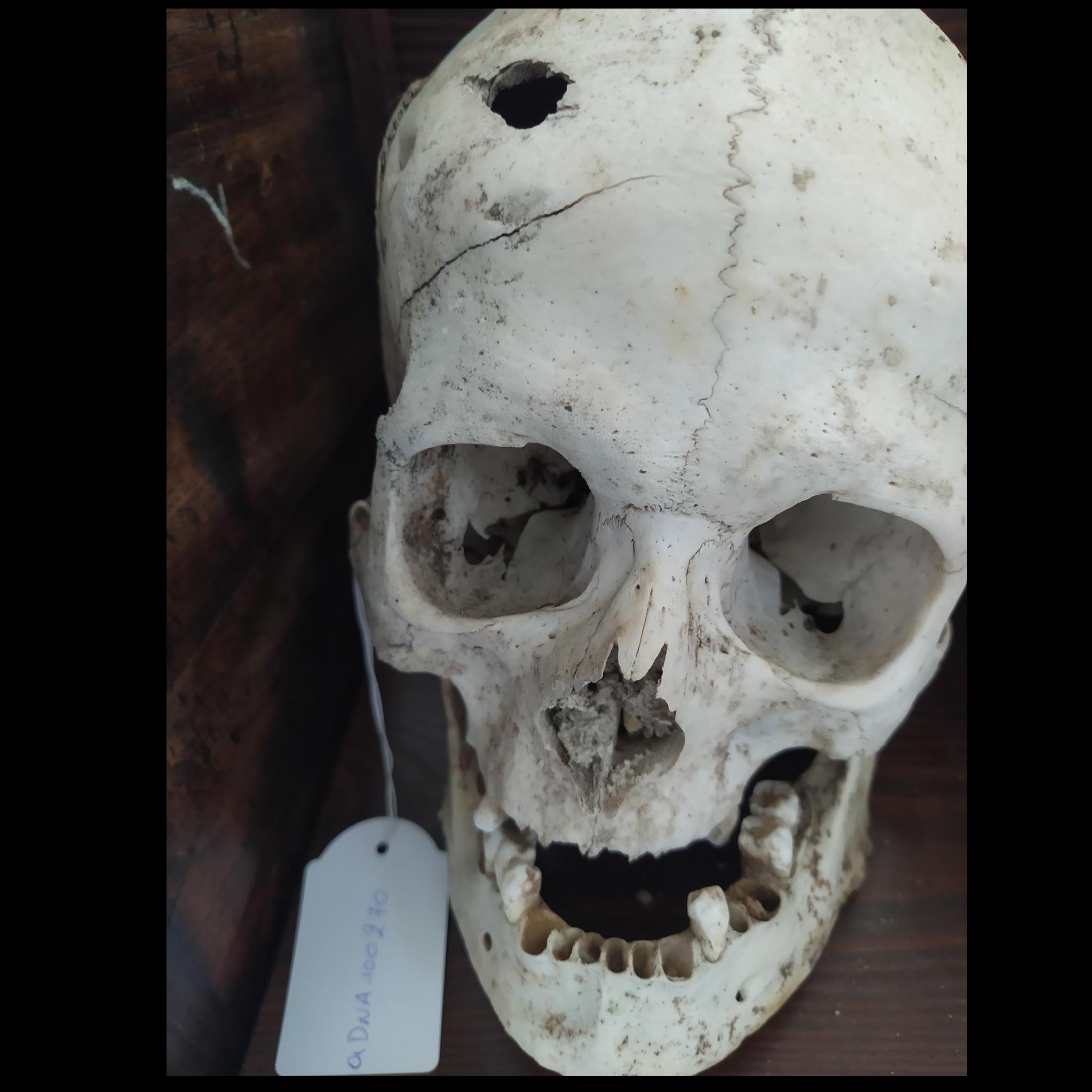All Science News

FORTH researchers identify the 18 World War II executed civilians of Adele, Rethymnon
A pioneering, national-level study, was conducted by the research group of Paleogenomics and Evolutionary Genetics of the Institute of Molecular Biology and Biotechnology (IMBB) of the Foundation for Research and Technology-Hellas (FORTH). Eighteen civilians from the village of Adele (Rethymno) massively executed on June 2, 1941, were identified, utilizing ancient DNA and genomic analysis techniques. The results of these findings were recently published in the prestigious scientific journal Forensic Science International: Genetics, entitled: "Identification of the 18 World War II Executed Citizens of Adele, Rethymnon, Crete Using an Ancient DNA Approach and Low Coverage Genomes".
The lab of Paleogenomics and Evolutionary Genetics aims to conduct basic and applied research in the field of ancient genome analysis. Ancient DNA (aDNA) refers to the preserved, but often highly degraded genetic material, recovered from remains found at paleontological and archaeological sites. Sources of genetic material can be isolated from specimens aged anywhere from 100 and up to thousands of years old. The lab specializes in the development, application and analysis techniques related to poorly preserved osteological material, thus creating an important experimental approach for the molecular identification of human remains and thus a powerful methodological tool for forensic research.
In this context, and following the request of the Adele community, the laboratory undertook, coordinated and completed, the humanitarian task of identifying the 18 civilians, victims of Nazism, who were forced to dig their own mass grave. Recognizing the historical, sensitive and international nature of the issue, which transcends the narrow local boundaries, the laboratory, in close cooperation with the community, proceeded with the systematic, methodological and interdisciplinary study of the victims' remains. The results of the research will be announced at an official memorial event to be held on 2 June 2024.
 |  |
 |  |
The research applied a combination of archaeogenomic analyses and targeted anthropological study of all cranial remains, in order to identify all victims. At the same time, the fragmented skulls were restored using anthropological methods. The molecular identification of the deceased was achieved through low-coverage sequencing technologies on the whole genome and compared to that of the victims' relatives, and through ancient DNA analysis approaches in order to assess the degree of genetic relatedness, always in compliance with the rules of ethics and personal data protection.
It is worth mentioning, that this study is the first -national level- published work, shedding light on the humanitarian and historical gap, contributing to the closing of an open chapter for the community, but also to the healing of the wounds of the Adele family victims. The laboratory's involvement in the research was a multilevel, complex and demanding challenge, which nevertheless succeeded in satisfying the long-standing and persistent desire of the relatives for moral vindication of the memory of their ancestors. Eighty-three years later, their loss continues to move and illuminate our path.
Prof. Nektarios N. Tavernarakis, Chairman of the Board of Directors at the Foundation for Research and Technology additionally stated:
“FORTH, utilizing its extensive experience, expertise and commitment to pioneering research in the field of archaeogenetics, proceeded with the establishment of the first and only ancient DNA analysis laboratory in Greece and one of the few in Europe, with the funding support of the Region of Crete. The lab operates according to international standards, connecting modern scientific research with our culture and history, while creating new perspectives for the study of the past and for the promotion of the Greek cultural heritage.
The Unit of archaeogenetics enables archaeologists and researchers of life sciences to gain access to analytical technologies that until recently were only available abroad. The unit, provides unique opportunities for interdisciplinary approaches and collaborations between traditionally distant scientific disciplines. This linking of classical humanities with life sciences, in particular biology, provides a springboard for innovative research activities, while creating employment opportunities for specialized scientific staff.
The recent study involving the identification of the 18 civilians executed by the Nazis at Adele is a prime example of how modern biomedical research can be directly linked to our culture and history. It opens a new window into our past, allowing us to gain decisive insights into key historical events with a major social impact.”
The project was carried out by an interdisciplinary team of experts, led by N. Poulakakis, scientific director of the Laboratory of Paleogenomics and Evolutionary Genetics of IMBB-FORTH, and Professor of the Department of Biology of the University of Crete. The team included the following members of the laboratory: Eugenia Tabakaki, archaeologist, specialized in Bioethics, the postdoctoral researchers Despoina Vassou, Chemist, Nikolaos Psonis, Evolutionary Biologist, Argyro Nafplioti, Bioanthropologist, as well as Pavlos Pavlidis, Associate Professor of the Department of Biology of the University of Crete and Associate Researcher of the Institute of Computer Science-FORTH, and Alexandros Stamatakis, Professor of Computer Science at the Karlsruhe Institute of Technology (KIT), Research Director at the Heidelberg Institute for Theoretical Studies (HITS) and ERA chair (European Research Area) in Computational Biodiversity at the Institute of Computer Science-FORTH.
Link to the publication:
https://www.sciencedirect.com/science/article/pii/S1872497324000541








